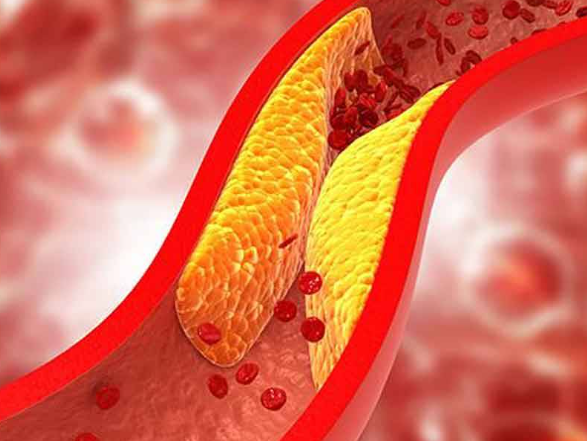Original article: Sinar Harian
Cardiovascular disease is on the rise in Malaysia, with patients developing this condition eight years earlier than the global average. This might be happening due to the misconception that “heart attacks only happen to older people”.
The fact is, the majority of young people today have a very high level of cholesterol which endangers their health.
The World Health Organisation (WHO) estimates that more than 15 million people die from Atherosclerotic Cardiovascular Disease (ASCVD) every year, contributing to 85% of global cardiovascular deaths.
In Malaysia, four out of 10 Malaysian adults, including those under the age of 40, suffer from high cholesterol levels and this disease has contributed to 71% premature death.
High cholesterol is the main contributor to ASCVD. High cholesterol levels can lead to a condition known as hyperlipidemia (excess of lipids in the blood), which can cause cardiovascular problems such as chest pain or heart attacks.
Cholesterol is a waxy substance found in body cells and has a few useful functions, including cell building and producing hormones. The liver produces 70 percent to 80 percent of the body’s cholesterol, while the rest comes from diet, especially from the consumption of animal products.
Cholesterol comes in two forms. Low-density Lipoprotein cholesterol (LDL-c) which is also known as the bad cholesterol and high-density lipoprotein cholesterol (HDL-c), which are beneficial to our bodies.
The term high cholesterol is often used to depict a situation where too much LDL-c in the blood can lead to artery blockage, which can cause heart diseases or stroke.
By understanding the facts about cholesterol, one can choose the best way to manage cholesterol level and reduce the risks of heart disease and stroke. Here are few important things to know about cholesterol:
- High cholesterol does not only affect older people.
Cholesterol level is not related to age, sex or weight. The amount of cholesterol level may increase along with age but the problems related to cholesterol such as heart attack or stroke can strike at any age.
Individual cases that suffer heart attacks in their 20s or early 30s are serious. In fact, one out of five heart attack patients today aged below 40 years old. This is why, young adult must take early action and regularly perform health screening, in addition to sustaining a healthy lifestyle to lower high cholesterol levels.
- Being slim and active is not the same as having low cholesterol levels
It’s common to hear people say, “I am slim and active and that’s why I don’t think I have a high cholesterol.” Although studies have shown that overweight people are more likely to have high cholesterol, the level of cholesterol is also determined by several factors such as diet or types of food consumed, stress, genetics and lifestyle.
It is better not to leave one’s health to assumptions. All adults are advised to check their cholesterol annually while the risks are still low. Detecting high cholesterol levels early is important to reduce the risk of cardiovascular diseases and stroke.
- Pay attention to family factors
If a person has a family member with heart disease or high cholesterol, there is a high possibility that they may inherit the same problem. Familial Hypercholesterolemia (FH), a genetic disorder that affects 1 in 250 people, can increase a person’s chance of developing coronary heart disease at a young age.
FH is caused by gene mutation which was inherited and affects the way the body regulates and removes cholesterol from the blood.
Anyone with a family history of high cholesterol and heart attack is recommended to be screened as early as 9 years old.
- Know your LDL-C
High cholesterol is ‘asymptomatic’ with no visible condition, with no obvious signs or symptoms of cholesterol. Many of us don’t even realize it. No matter how fit and healthy you feel, it’s important to know your cholesterol number.
As a general principle, it is advisable to maintain an ideal LDL-c range between 1.4 – 2.6 mmol/L. If a person’s cholesterol level exceeds that range, it is advisable to seek medical help to reduce the risk of a heart attack or stroke.
Holistic steps to manage high cholesterol levels
If a person is found to have high cholesterol, he/she should immediately take steps to lower cholesterol levels based on a thorough evaluation and consultation with a doctor.
Doctors may suggest a holistic approach that includes new treatments that can effectively reduce low-density lipoprotein cholesterol (LDL-c) to optimal levels.
At the same time, a positive lifestyle change that can lead to long-term benefits from a health and mental perspective must be practiced as soon as possible. This includes:
- Eat a healthy diet low in saturated fat, trans fat and salt (sodium) and avoid drinks with added sugar. High fiber food such as fresh fruits and vegetables are ideal!
- Be physically active, try to perform at least 150 minutes of light aerobic activity in a week.
- Limit alcohol intake and stop smoking.
- Committed to taking medications aimed at managing cholesterol, blood pressure and blood sugar levels in a timely and consistent manner.



